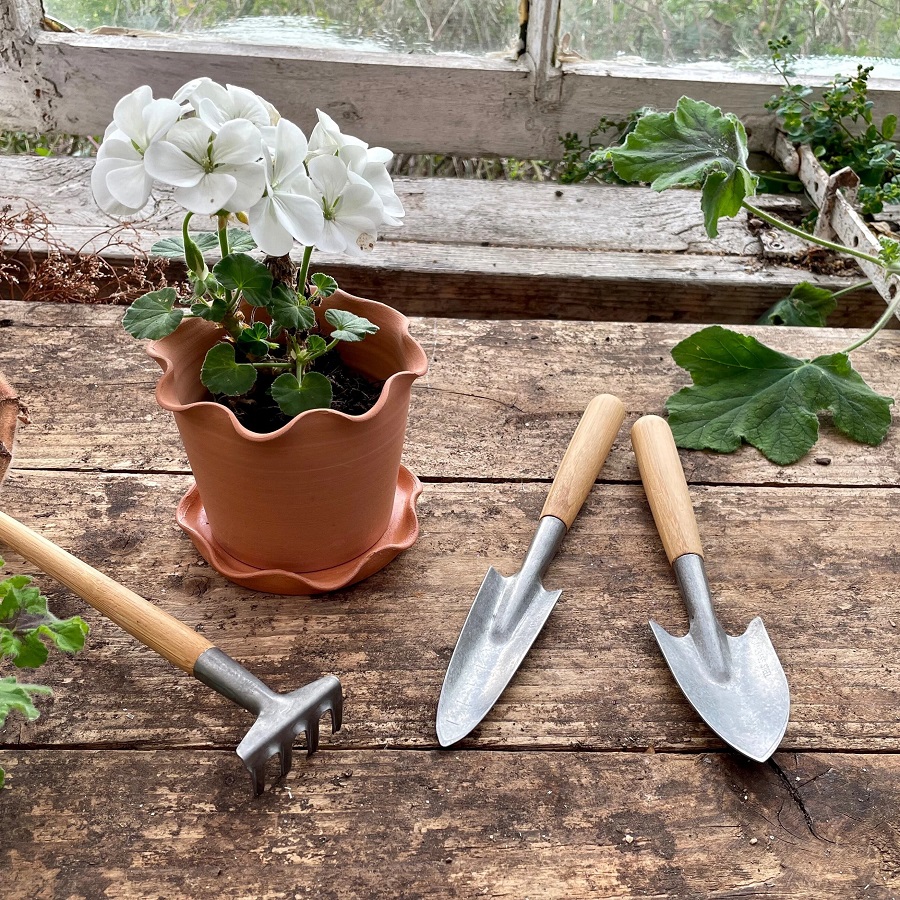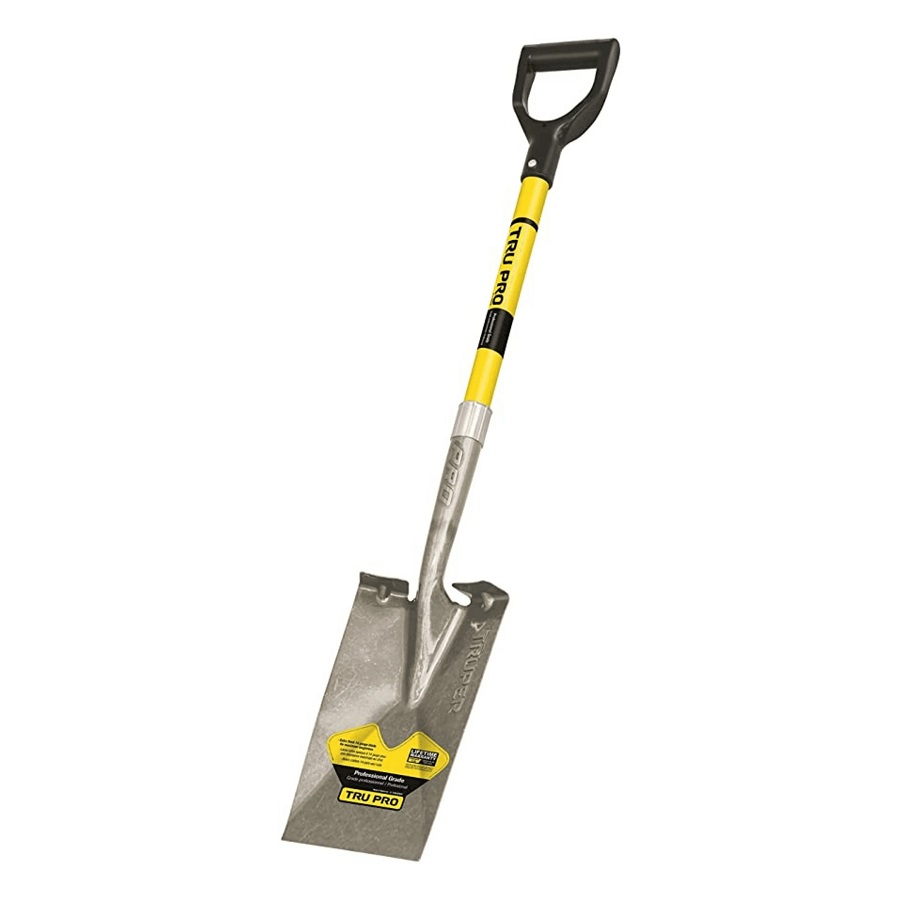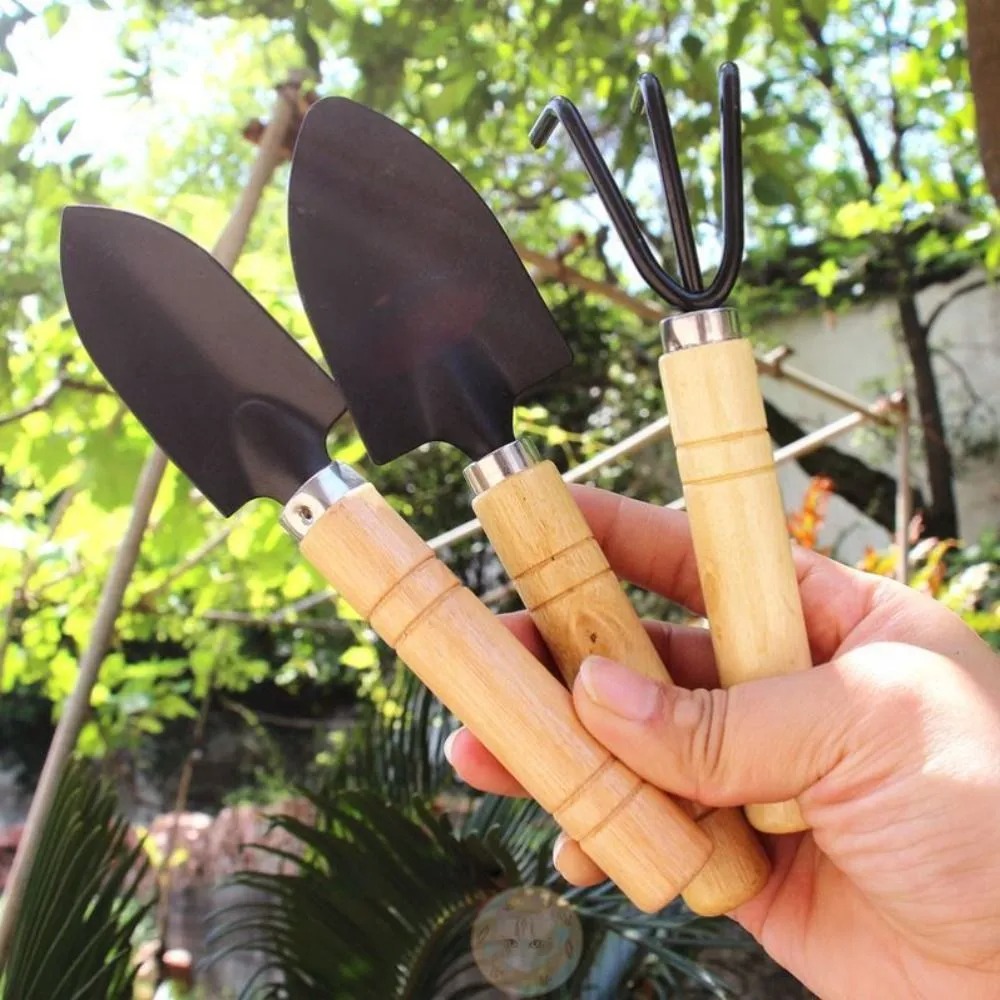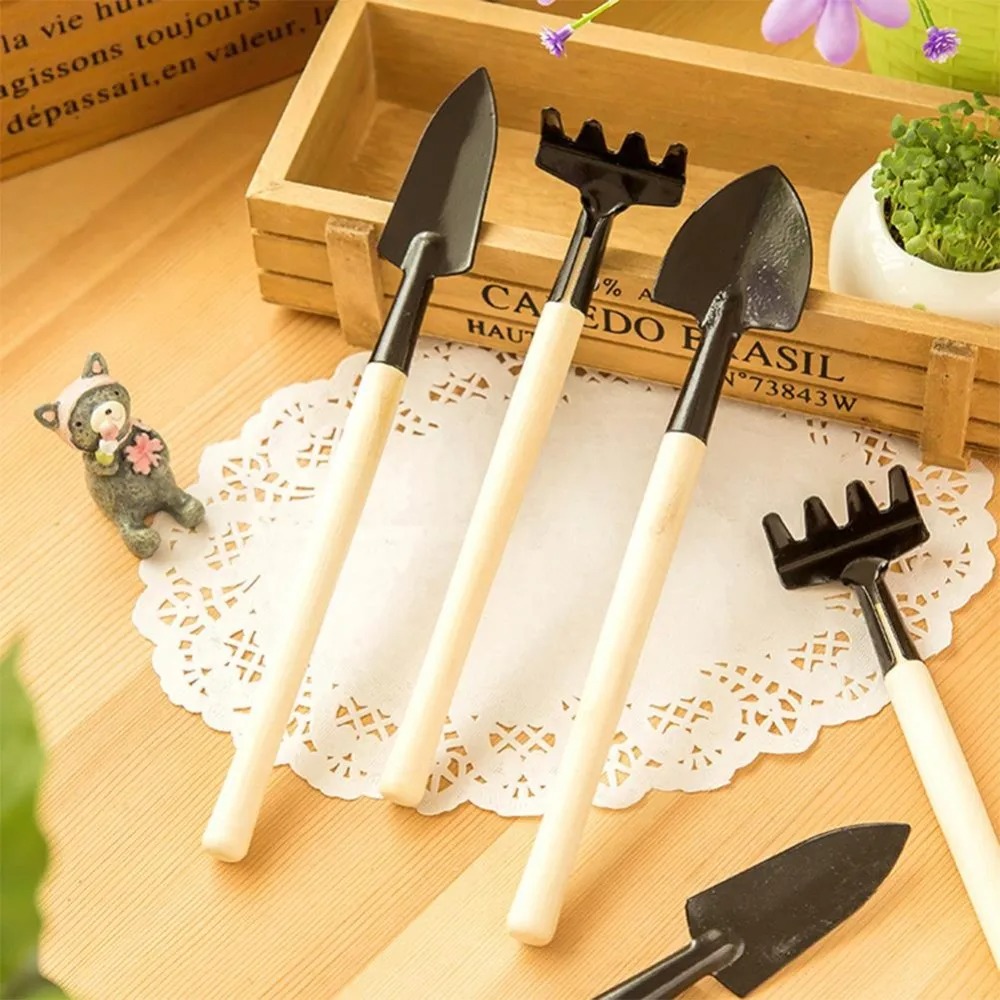Introduction
Gardening is a rewarding hobby that can bring joy, beauty, and even fresh produce to your home. However, having the right tools is crucial for making the most of your gardening experience. One of the most essential tools in any gardener’s arsenal is the small garden shovel, also known as a trowel. A well-chosen trowel can make planting, digging, and weeding much more efficient and enjoyable. In this article, we will explore the key factors to consider when choosing the perfect small garden shovel, ensuring you find the right tool for your needs.

Understanding the Importance of a Good Trowel
The Role of a Small Garden Shovel in Gardening
A small garden shovel is a handheld tool with a small, flat blade attached to a handle. It is primarily used for digging, planting, and moving soil, but it can also be useful for other tasks such as dividing plants, removing weeds, and even mixing soil amendments. The compact size of a trowel makes it ideal for working in tight spaces, like container gardens or raised beds, where larger tools would be cumbersome.
Benefits of Using a High-Quality Trowel
- Efficiency: A good trowel allows you to work quickly and effectively, saving you time and effort.
- Precision: The right trowel can help you plant seeds and seedlings with greater accuracy, leading to better growth and yield.
- Comfort: A well-designed trowel is comfortable to hold and use, reducing the risk of hand strain and fatigue.
- Durability: A high-quality trowel will last longer, providing you with years of reliable service.
Factors to Consider When Choosing a Trowel
Blade Material
The material of the small garden shovel is one of the most important factors to consider. Different materials offer different benefits, and the right choice depends on your specific needs and preferences.
Stainless Steel
- Pros:
- Corrosion Resistance: Stainless steel is highly resistant to rust and corrosion, making it a durable choice for outdoor use.
- Strength: It is strong and sturdy, capable of handling tough soil and roots.
- Ease of Cleaning: The smooth surface of stainless steel is easy to clean, reducing the risk of dirt and debris buildup.
- Cons:
- Weight: Stainless steel trowels can be heavier than those made from other materials, which may cause fatigue during extended use.
- Cost: They are generally more expensive than trowels made from other materials.
Carbon Steel
- Pros:
- Strength and Durability: Carbon steel is extremely strong and can withstand heavy use.
- Sharpness: It can be sharpened to a fine edge, making it ideal for cutting through tough soil and roots.
- Affordability: Carbon steel trowels are often less expensive than stainless steel ones.
- Cons:
- Rust Prone: Carbon steel is more susceptible to rust and corrosion, requiring regular maintenance to keep it in good condition.
- Maintenance: It needs to be cleaned and oiled regularly to prevent rusting.
Aluminum
- Pros:
- Lightweight: Aluminum is a lightweight material, making it easier to handle and use for extended periods.
- Corrosion Resistance: It is naturally resistant to rust and corrosion, although not as much as stainless steel.
- Affordability: Aluminum trowels are generally affordable and widely available.
- Cons:
- Softness: Aluminum is softer than steel, which means it may bend or deform under heavy use.
- Durability: It is not as durable as steel and may need to be replaced more frequently.
Handle Design
The design of the trowel’s handle is another critical factor to consider, as it directly affects comfort and ease of use.

Ergonomic Handles
- Pros:
- Comfort: Ergonomically designed handles are shaped to fit the natural contours of your hand, reducing strain and fatigue.
- Grip: They often feature non-slip materials or textures, providing a secure grip even when your hands are wet or dirty.
- Versatility: Many ergonomic handles are suitable for both left-handed and right-handed users.
- Cons:
- Cost: Ergonomic trowels can be more expensive than standard designs.
- Size: Some ergonomic handles may be bulkier, which could be a disadvantage if you have smaller hands.
Traditional Handles
- Pros:
- Simplicity: Traditional handles are straightforward and easy to use.
- Affordability: They are often less expensive than ergonomic designs.
- Variety: Traditional handles come in a wide range of materials, including wood, plastic, and metal, allowing you to choose the one that best suits your needs.
- Cons:
- Comfort: They may not provide the same level of comfort and support as ergonomic handles, especially during extended use.
- Grip: Standard handles may become slippery when wet, increasing the risk of dropping the trowel.
Blade Shape and Size
The shape and size of the trowel’s blade can significantly impact its functionality and suitability for different tasks.
Blade Shapes
- Flat Blades:
- Pros:
- Versatility: Flat blades are suitable for a wide range of tasks, including digging, planting, and moving soil.
- Precision: They allow for precise cuts and are ideal for working in tight spaces.
- Cons:
- Limited Depth: Flat blades may not be as effective for deep digging, especially in hard or compacted soil.
- Pros:
- Curved Blades:
- Pros:
- Deep Digging: Curved blades are designed for deeper digging, making them ideal for planting bulbs and larger plants.
- Soil Turning: They are excellent for turning and aerating soil, improving drainage and root growth.
- Cons:
- Less Precision: Curved blades may be less precise for detailed work, such as planting small seeds or seedlings.
- Pros:
- Pointed Blades:
- Pros:
- Penetration: Pointed blades are great for breaking through tough soil and roots.
- Weeding: They are particularly useful for removing weeds, as the pointed tip can easily cut through roots.
- Cons:
- Limited Versatility: Pointed blades may not be as versatile as flat or curved blades for general gardening tasks.
- Pros:
Blade Size
- Small Blades:
- Pros:
- Precision: Smaller blades are ideal for detailed work, such as planting small seeds or seedlings.
- Maneuverability: They are easy to maneuver in tight spaces, making them perfect for container gardening.
- Cons:
- Limited Capacity: Smaller blades can only move a limited amount of soil at a time, which may slow down your work.
- Pros:
- Large Blades:
- Pros:
- Efficiency: Larger blades can move more soil with each scoop, making them more efficient for large-scale projects.
- Versatility: They are suitable for a wide range of tasks, from digging to moving soil.
- Cons:
- Bulkiness: Larger blades can be more cumbersome to use, especially in confined spaces.
- Weight: They may be heavier, which can lead to fatigue during extended use.
- Pros:
Additional Features
Some trowels come with additional features that can enhance their functionality and convenience.

Markings and Measurements
- Pros:
- Accuracy: Trowels with markings and measurements on the blade can help you plant seeds and seedlings at the correct depth, ensuring optimal growth.
- Convenience: You won’t need to carry a separate measuring tool, as the trowel itself provides the necessary measurements.
- Cons:
- Wear and Tear: The markings may wear off over time, especially if the trowel is frequently used in harsh conditions.
Hanging Holes
- Pros:
- Storage: Trowels with hanging holes can be easily stored on a hook or pegboard, keeping them organized and within reach.
- Accessibility: They are always ready to use, eliminating the need to search for them in a cluttered toolbox.
- Cons:
- Aesthetic: Some gardeners may find the hanging hole to be an eyesore, preferring a cleaner, more streamlined design.
Non-Slip Grip
- Pros:
- Safety: A non-slip grip provides a secure hold, reducing the risk of the trowel slipping out of your hand.
- Comfort: It can improve the overall comfort of using the trowel, especially in wet or muddy conditions.
- Cons:
- Durability: The non-slip material may wear down over time, requiring replacement or reapplication.
How to Choose the Right Trowel for Your Needs
Assess Your Gardening Tasks
Before selecting a trowel, consider the types of gardening tasks you will be performing. If you primarily work with small seeds and seedlings, a trowel with a small, flat blade and a non-slip grip may be the best choice. For larger plants and deep digging, a trowel with a curved or pointed blade and a robust handle will be more suitable.
Consider Your Physical Comfort
Your physical comfort is crucial, especially if you spend a lot of time gardening. If you have arthritis or other hand conditions, an ergonomic trowel with a soft, cushioned handle may be the best option. For those with smaller hands, a trowel with a smaller, more manageable handle may be more comfortable.
Think About Durability and Maintenance
If you plan to use your trowel frequently and in challenging conditions, a durable, rust-resistant material like stainless steel is a wise choice. While it may be more expensive, the longevity and reliability of the trowel will be worth the investment. On the other hand, if you are a casual gardener, a more affordable option like aluminum may suffice.
Read Reviews and Test Before Buying
Reading reviews from other gardeners can provide valuable insights into the performance and durability of different trowels. Additionally, if possible, try to test the trowel in person before purchasing. This will give you a feel for its weight, balance, and overall comfort, helping you make a more informed decision.
Conclusion
Choosing the perfect small garden shovel, or trowel, is a decision that should not be taken lightly. The right trowel can make your gardening experience more enjoyable, efficient, and productive. By considering factors such as blade material, handle design, blade shape and size, and additional features, you can find a trowel that meets your specific needs and preferences. Whether you are a seasoned gardener or just starting out, investing in a high-quality trowel is a step towards a more successful and satisfying gardening journey. Happy gardening!
